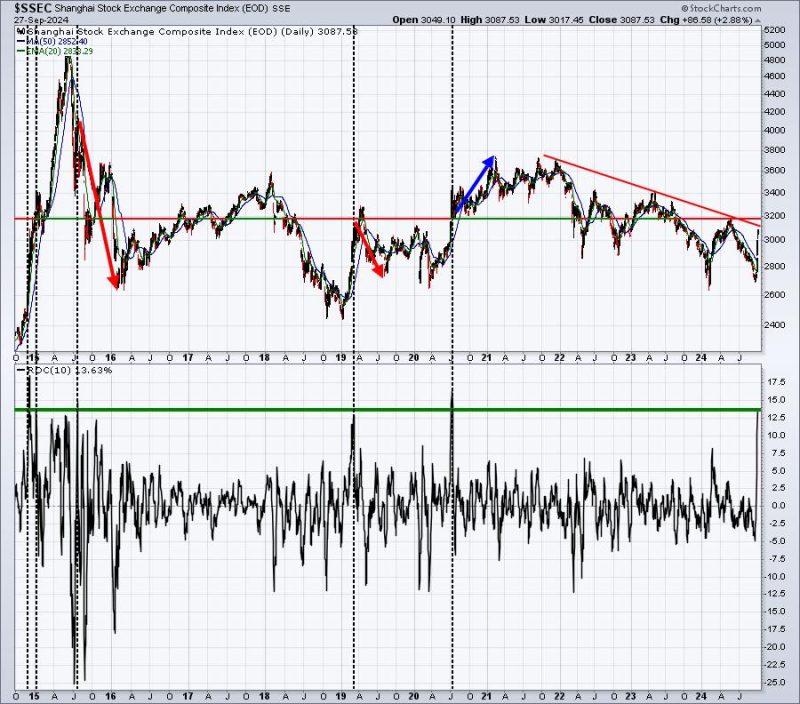The recent surge in China’s stock market has surprised many investors and analysts. After a strong performance last week, questions arise as to whether this impressive momentum can be sustained. The optimism surrounding China’s economy has been fueled by various factors, but uncertainties still linger. In this article, we delve into the key drivers behind China’s recent strength and analyze the challenges that could potentially impede its continued growth.
One of the significant drivers of China’s market strength is the country’s economic recovery from the impact of the COVID-19 pandemic. As one of the first countries to be hit by the virus, China swiftly implemented strict measures to contain its spread. This proactive approach enabled the country to curb the outbreak relatively quickly and resume economic activities sooner than many other nations. The gradual reopening of businesses and factories has boosted investor confidence in China’s economic resilience.
Moreover, China’s emphasis on technological innovation and digitalization has positioned the country as a global leader in these sectors. Investments in artificial intelligence, 5G technology, and e-commerce have propelled China’s tech companies to the forefront of the global marketplace. Companies like Alibaba, Tencent, and Huawei have demonstrated strong growth and profitability, attracting both domestic and international investors.
Another factor contributing to China’s market strength is the government’s policy support and stimulus measures. Beijing has rolled out various initiatives to bolster economic growth, including tax cuts, infrastructure spending, and monetary easing. These measures have provided a stimulus to the economy and helped sustain the momentum in the stock market.
Despite the positive developments, challenges remain that could potentially dampen China’s growth prospects. One of the key concerns is the escalating trade tensions between China and the United States. The protracted trade war has cast a shadow of uncertainty over the global economic outlook and has weighed on investor sentiment. Any further escalation in trade disputes could hinder China’s export-driven economy and negatively impact its stock market performance.
Additionally, China’s high debt levels and property market bubbles pose risks to the country’s financial stability. The rapid expansion of credit in China has raised concerns about the sustainability of its debt levels and the potential for a financial crisis. Moreover, the overheated property market in major Chinese cities could lead to a housing bubble burst, which would have severe repercussions on the broader economy.
In conclusion, China’s recent market strength is a result of its economic resilience, technological prowess, and government support. However, challenges such as trade tensions, high debt levels, and property market risks pose threats to its sustainable growth. Investors and analysts will closely monitor these factors to assess whether China’s momentum can be sustained in the long run. A cautious approach is advised, considering the potential uncertainties that loom over China’s economic landscape.
